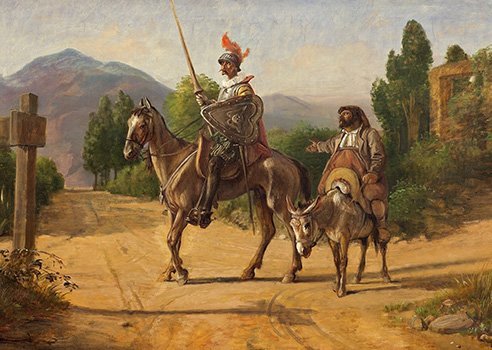Word count: 271 words
Reading time: About 1 minute
Increase your vocabulary and you’ll make your writing much more precise. That’s why I provide a word of the week. Today’s word: quixotic.
I’ve encountered the adjective quixotic in my reading practically since I started reading, almost 50 years ago. I can even recall looking it up several times over the years but for some reason the meaning hasn’t stayed imprinted on my brain. I suspected it might have something to do with the Spanish novel Don Quixote by Cervantes but had no particular basis on which to assume that, except, of course, the remarkable similarities between the name Quixote and quixotic.
When I most recently stumbled over the word in Don Gillmor’s fine novel, Mount Pleasant, I resolved to solve the mystery for once and all. Here is the sentence in which I found it:
His backyard project seemed suddenly quixotic.
Sigh. No clues by context in that sentence! I turned to my etymological dictionary and discovered the word means “extravagantly chivalrous,” and dates back to 1791. And here’s the fascinating thing: It was, in fact, inspired by the romantic hero of Cervantes’ novel. Interestingly, the word quixote literally means “thigh,” and “a cuisse” (a piece of armor for the thigh), although in Modern Spanish it is spelled quijote.
The word originates from the from Latin coxa, meaning “hip.” I’m hoping that my etymological spade work is going to make it easier for me to remember this term in future. I’ve not read Don Quixote, but surely I can recall that the hero of the story was extravagantly chivalrous.


